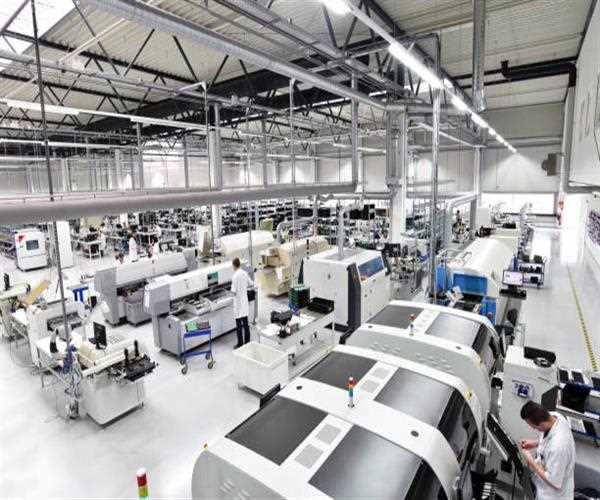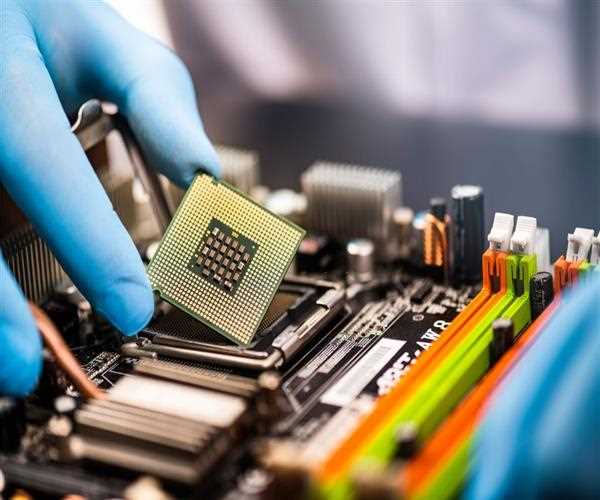
19-Jul-2023 , Updated on 7/19/2023 4:01:51 AM
Foxconn pulls out $19 billion chipmaking project in India
Highlights
- Foxconn and Vedanta, an Indian metals and energy conglomerate, had announced the joint venture in February 2022.
- The project was to build a chipmaking plant in Gujarat, India, that would produce semiconductors for smartphones, laptops, and other electronic devices.
- Foxconn said that the decision to pull out was based on "mutual agreement" and that it would allow the company to "explore more diverse development opportunities."
- The Indian government has expressed disappointment with Foxconn's decision.
- There are a number of reasons why Foxconn may have decided to pull out of the project, including concerns about the long-term profitability of the chipmaking business and difficulties in securing government approvals.
- The Foxconn decision is a setback for India's ambitions to become a major player in the global semiconductor industry.
- The long-term prospects for chipmaking in India are good, but the country needs to address the challenges it faces, such as the complex regulatory environment and concerns about corruption.
- Foxconn's decision is a reminder of the challenges that countries face in attracting investment in the semiconductor industry.
In a surprise move, Foxconn has announced that it is pulling out of a $19 billion chipmaking project in India. The decision is a blow to the Indian government's plans to become a major player in the global semiconductor industry.
Foxconn and Vedanta, an Indian metals and energy conglomerate, had announced the joint venture in February 2022. The project was to build a chipmaking plant in Gujarat, India, that would produce semiconductors for smartphones, laptops, and other electronic devices.
In a statement, Foxconn said that the decision to pull out was based on "mutual agreement" and that it would allow the company to "explore more diverse development opportunities." The company did not elaborate on what those opportunities might be.
The Indian government has expressed disappointment with Foxconn's decision. "We are deeply disappointed that Foxconn has decided to pull out of the project," said a spokesperson for the Ministry of Electronics and Information Technology. "We had been working closely with the company to make the project a success."
The government has said that it will continue to work to attract other investors to the semiconductor industry in India. However, the Foxconn decision is a setback for those efforts.

There are a number of reasons why Foxconn may have decided to pull out of the project. One possibility is that the company was concerned about the long-term profitability of the chipmaking business. The global semiconductor industry is highly cyclical, and there have been concerns about overcapacity in recent years.
Another possibility is that Foxconn was unable to secure the necessary government approvals for the project. The Indian government has a complex regulatory environment, and it can be difficult for foreign companies to get projects approved.
Whatever the reasons for Foxconn's decision, the pullout is a blow to India's ambitions to become a major player in the global semiconductor industry. The country currently imports most of its semiconductors, and the government has been trying to attract investment in the domestic chipmaking industry.
The Foxconn decision is a reminder of the challenges that India faces in attracting foreign investment. The country's regulatory environment is often seen as complex and opaque, and there are concerns about corruption.
Despite the challenges, India remains a potential market for semiconductor manufacturing. The country has a large and growing population, and there is a growing demand for electronic devices. If India can address the challenges that it faces, it could become a major player in the global semiconductor industry.
What does Foxconn's decision mean for the future of chipmaking in India?
Foxconn's decision to pull out of the chipmaking project in India is a setback for the country's ambitions to become a major player in the global semiconductor industry. However, it is not a fatal blow. There are still other companies that are interested in investing in chipmaking in India, and the government is committed to attracting investment in the sector.
The long-term prospects for chipmaking in India are good. The country has a large and growing population, and there is a growing demand for electronic devices. This demand is likely to continue to grow in the coming years, as more and more people in India adopt smartphones, laptops, and other electronic devices.
What are the implications of Foxconn's decision for other countries?
The decision could also have implications for other countries that are trying to attract investment in chipmaking. Countries that are seen as having a complex regulatory environment or concerns about corruption may find it more difficult to attract investment.
The long-term implications of Foxconn's decision for other countries are still unclear. However, it is clear that the decision is a setback for the global semiconductor industry. The industry is already facing challenges, such as the shortage of chips, and the decision could make it even more difficult for countries to secure the investment they need to meet the growing demand for semiconductors.
What can India do to attract investment in chipmaking?
There are a number of things that India can do to attract investment in chipmaking. These include:
- Simplifying the regulatory environment. The Indian government needs to simplify the regulatory environment for foreign investors. This would make it easier for companies to get projects approved and to start operations in India.
- Addressing concerns about corruption. The Indian government needs to address concerns about corruption. This would make it more attractive for companies to invest in India.
- Providing incentives for investment. The Indian government could provide incentives for investment in chipmaking. This could include tax breaks, subsidies, or other forms of financial assistance.
- Building a skilled workforce. India needs to build a skilled workforce in the semiconductor industry. This would make it easier for companies to find qualified employees in India.
If India can address these challenges, it could become a major player in the global semiconductor industry. The country has the potential to create jobs, boost the economy, and become a major supplier of semiconductors to the world.
If India can address the challenges that it faces, such as the complex regulatory environment and concerns about corruption, it could become a major player in the global semiconductor industry. The country has the potential to become a major supplier of semiconductors to the world, and this would create jobs and boost the economy.

SEO and Content Writer
I am Drishan vig. I used to write blogs, articles, and stories in a way that entices the audience. I assure you that consistency, style, and tone must be met while writing the content. Working with the clients like bfc, varthana, ITC hotels, indusind, mumpa, mollydolly etc. has made me realized that writing content is not enough but doing seo is the first thing for it.
Join Our Newsletter
Subscribe to our newsletter to receive emails about new views posts, releases and updates.
Copyright 2010 - 2026 MindStick Software Pvt. Ltd. All Rights Reserved Privacy Policy | Terms & Conditions | Cookie Policy